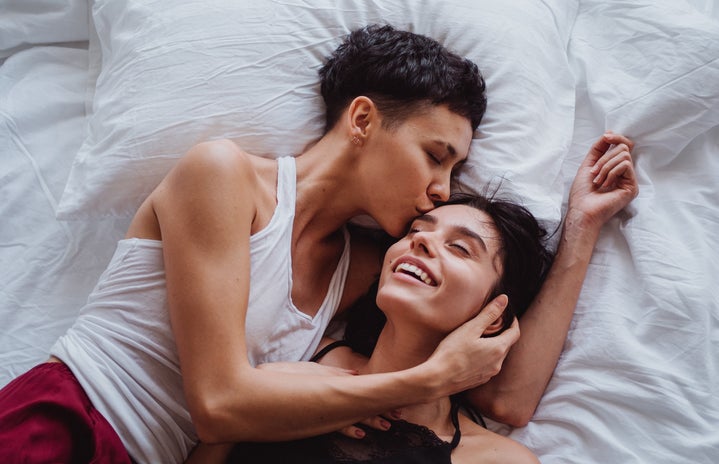As explained by social psychologists Bartholomew and Horowitz in their academic essay entitled Attachment Styles Amongst Young Adults (1991), we have four different types of attachment in our relationships. These four types are classified as secure, defensive-avoidant, anxious-avoidant, and anxious-preoccupied. It has been said that adults will experience all of these types of attachment styles over time, but that is (obviously) not the same for everybody.
To find your attachment style, there are online assessments that can help narrow your style down. The Attachment Project emphasizes how childhood conditioning affects our adult relationships. In taking the assessment, the website asks about both parental figures and how you interacted with them growing up. It ranges on a scale of Strongly Disagree to Strongly Agree, and takes about five minutes to complete. In taking the assessment myself, my results said I was an anxious/preoccupied type. After reading more about it, I found it makes a lot of sense in how I interact with others in my life. In recognizing my relationship attachment style now, I am able to find tips on how to feel better and strive for security in my relationships.
The different types of relationship attachment styles are:
SECURE ATTACHMENT
People who display secure attachment styles in their relationships may also have higher emotional intelligence and the ability to communicate their emotions to others. They feel secure in being alone, even when in a relationship, and tend to have a more optimistic outlook on people and interactions with them. They are able to seek support in their relationships but are secure in their reactions when apart from others.
Ways to feel more secure in your attachment to others:
- Do not compare yourself to other couples in real life or on social media.
- Focus on the positives in your life and in your relationships, knowing that you can build trust in others.
- Talk to others as soon as you need to; if something is wrong, don’t wait!
- Know when to listen to others and when to listen to your gut; only you know yourself best.
Defensive-Avoidant Attachment
People who display defensive-avoidant attachment styles in their relationships may downplay the importance of their relationships in their lives. They are extremely self-reliant, to the point where they will not ask for help from others, even when they are struggling. However, when there is a larger crisis, they can be pushed to become more vulnerable in their relationships.
To learn more about defensive-avoidant attachment styles, read more here.
Anxious-Avoidant Attachment
People who display anxious-avoidant attachment styles in their relationships are generally fearful and take a dependent role in relation to others. They are dismissive and have a strong fear of rejection in relationships; because of this, they may have issues with low self-esteem and communicating this feeling to others due to their fear of rejection. These people generally have high anxiety in their relationships and lack feelings of security, trust, and worth.
To learn more about anxious-avoidant attachment styles, read more here.
Anxious-Preoccupied Attachment
People who display anxious-preoccupied attachment styles in their relationships are overly invested and involved in their relationships. They rely on others for affirmations of self-worth, acceptance, and validation; at times coming off as demanding or needy. They have a fear of total autonomy and separation from others. These people generally have a desire and inclination to fit in and be accepted by others.
To learn more about anxious-preoccupied attachment, read more here.


